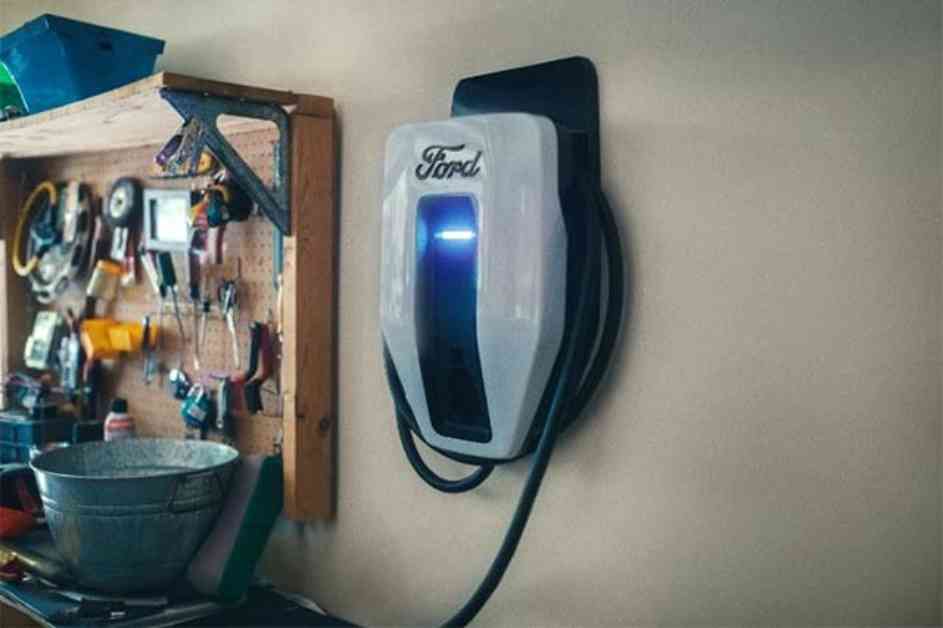Ford is making a bold move to encourage more people to switch to electric vehicles. With the launch of the “Ford Power Promise” program, the company is offering a range of benefits to new EV buyers to make the transition easier and more appealing. This initiative includes free home-charging installation, access to advisor services, and roadside assistance, all aimed at addressing common concerns that have been holding back mainstream adoption of electric cars.
Marin Gjaja, Ford’s chief operating officer of the Model e EV business, highlighted the importance of home charging and instilling confidence in the battery’s durability. These factors are crucial in helping consumers overcome the barriers to EV ownership. The program is specifically designed to alleviate worries about range anxiety and ensure that new EV owners have the necessary support and resources to make the switch seamlessly.
The free home charger installation offer is a significant highlight of the “Ford Power Promise” program. By providing customers with a level-two home charger, Ford is not only reducing the financial burden associated with installing charging infrastructure but also simplifying the charging process for new EV owners. This move is expected to make EV ownership more convenient and accessible, ultimately driving up EV sales and adoption rates.
In addition to the free home charger offer, Ford is also emphasizing its existing 8-year or 100,000-mile battery warranty. This warranty covers all high-voltage system components, including the battery, giving consumers peace of mind regarding the longevity and reliability of their EV. Many consumers may not be aware of this extensive warranty coverage, and Ford is keen on highlighting this aspect to build trust and confidence among potential EV buyers.
Overall, Ford’s “Ford Power Promise” program represents a strategic effort to accelerate the transition to electric vehicles. By addressing key concerns, offering valuable incentives, and providing comprehensive support, the company is aiming to make EV ownership a more attractive and viable option for consumers. As EV sales start to plateau, initiatives like these play a crucial role in driving the next wave of adoption and reshaping the automotive industry towards a more sustainable future.









